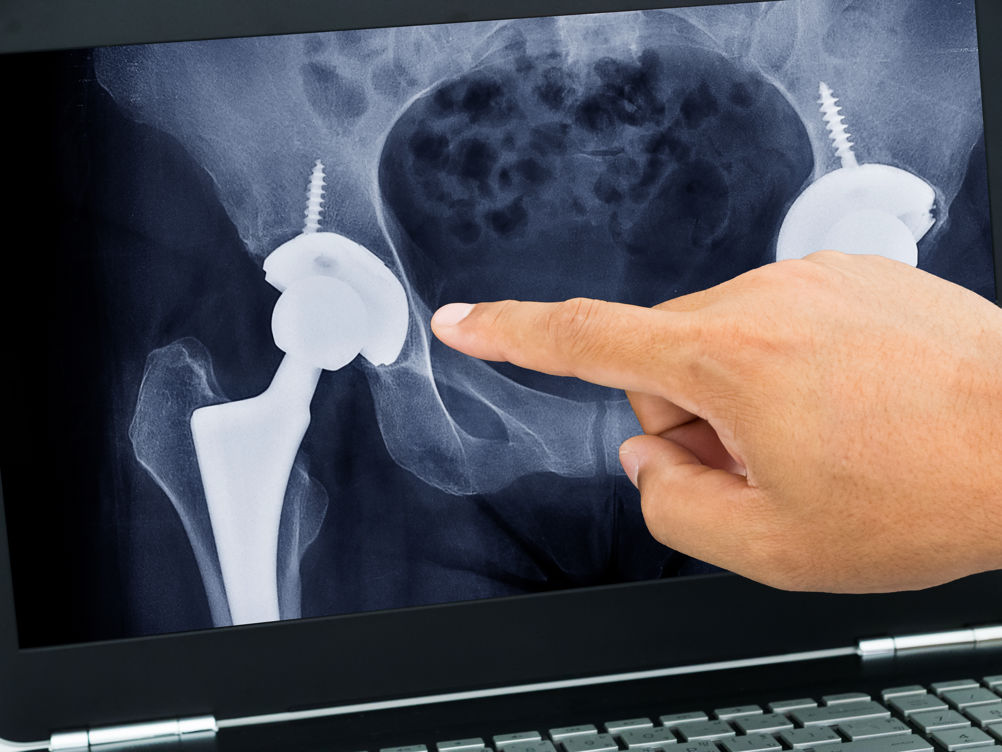In what’s claimed to be a world-first, the RACER-Hip trial will give new insight into the value of robotic assisted surgery, using hard data from one of the most common surgical procedures carried out by the NHS. RACER-Hip is being run in tandem with the RACER-Knee trial, which is investigating use of robots in knee replacement surgery.
Robotic surgery shown to improve patient outcomes
Imitation game: Behind the scenes at Cornish robot specialist Engineered Arts
COBRA repair robot set for human surgery
In robotic assisted hip replacement surgery, a robotic arm prepares the bone and inserts the components to a pre-programmed three-dimensional plan. It is thought using a robot to perform the surgery allows more precise, consistent surgical techniques, which may help to reduce variation and prevent poor outcomes and complications for patients. However, despite the robotic procedure increasing in popularity in recent years – particularly in the USA - there is currently little evidence to show that these systems are better than conventional surgery.
The RACER-Hip study - jointly run by University of Warwick, University Hospitals Coventry and Warwickshire (UHCW) NHS Trust, and the Royal Orthopaedic Hospital (ROH) in Birmingham - will aim to shed light on the outcomes of robotic hip replacement. Equal numbers of participants will be randomised to each treatment group to find out which surgical technique leads to better results. This will include asking questions about people’s ability to complete activities and their quality of life in the long-term and will also find out which method provides the best value for the NHS.
The team will invite patients from at least six NHS hospitals across England and Scotland to take part over the coming months. The first site has opened at the Royal Orthopaedic Hospital, while the Northumbria Healthcare NHS Foundation Trust has just taken delivery of one of the robots for the trial, the first time this service will be available within the NHS for hip operations in the Northeast of England. The manufacturer of the robot, Stryker, will be supporting the study costs to ensure hospitals do not have to pay extra to take part.

The trail is is being led by two surgeons: Mr Peter Wall, from the Royal Orthopaedic Hospital Birmingham and Warwick Clinical Trials Unit at the University of Warwick, and Professor Ed Davis, from the Royal Orthopaedic Hospital Birmingham.
“The RACER-Hip study is a significant investment by the NHS to examine the effectiveness of robotic hip replacement surgery,” said Mr Wall. “Robotic technology has the potential to revolutionise hip replacement surgery, however the first step to this is understanding whether it can help enhance the care surgeons provide.”
“We are really excited that some centres such as Northumbria Healthcare NHS Foundation Trust have been provided with a robot specifically to take part in this research.”
Professor Davis added: “The research will help orthopaedic surgeons across the world to better understand the most effective tools for performing hip replacement surgery and ensure the very best outcomes for their patients.
“This study will also include an in-depth health economic analysis to inform the NHS if this technology should be widely adopted.”
The trial is being funded by the National Institute for Health Research (NIHR).





Labour pledge to tackle four key barriers in UK energy transition
I'm all for clarity and would welcome anyone who can enlighten me about what Labour's plans are for the size and scale of this Great British Energy....